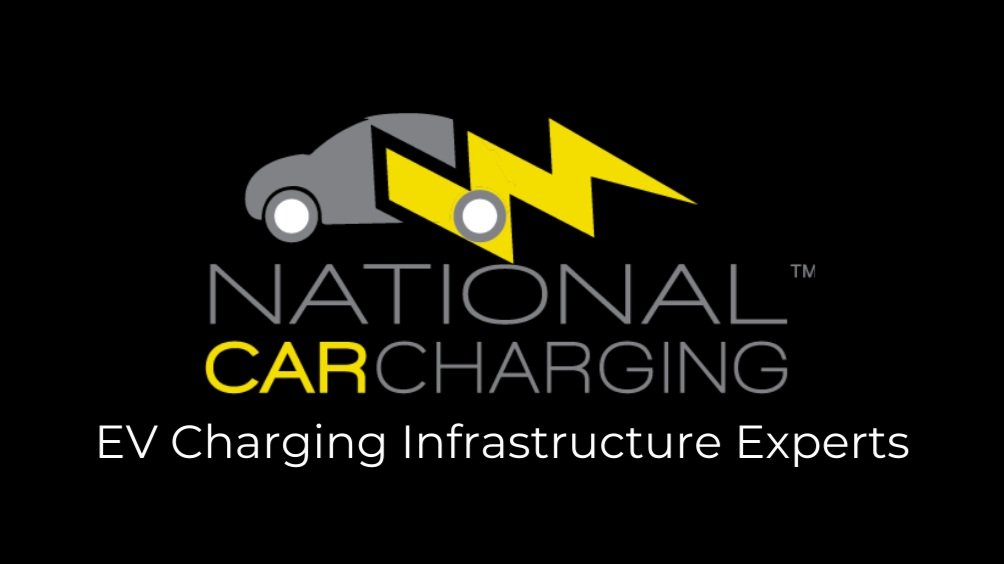MYTH: EVs are just as bad for the environment as fossil fuel cars.
One of the most common—and contentious—questions that electric vehicle (EV) experts are frequently asked is, “are electric vehicles really better for the environment? Especially in the case of batteries and the manufacturing process? And, what about when EVs are driving off fossil fuel-based electricity?
This is a prickly question for a reason! Are EVs 100% green with no associated emissions? Of course not! Nothing that is manufactured on an industrial scale today can reach zero emissions or “carbon neutrality.” However, it is still true that electric vehicles are better for the environment—and your health—when compared to gasoline and diesel vehicles.
NCC Partners with EVPassport to Bring Groundbreaking EV Charging to Auto Dealers.
National Car Charging, the nation’s leading independent EV charging infrastructure provider announced at the National Auto Dealers Association conference this week they are expanding their product mix to add EVPassport’s innovative new EVP30 Series – a mobile 30kW DC fast charger with 45 feet of total cable length. allowing dealers to bring charging to the car instead of having to bring the car to a designated charging spot.
Do EV Charging Stations Make for More Loyal Customers?
If you like us, we’ll like you. It makes sense, right? EVs need to be charged and drivers will frequent businesses that make charging easy for them. If fact, several years ago, Kohl’s found electric vehicle drivers spent about 20 more minutes in store than non-EV drivers and another major retailer found EV drivers spent more than three times longer in store. With statistics like these, the ROI is much higher and much easier to calculate than many other amenities.
C-STORES: Getting EV Ready?
Fueling is changing. Will c-stores adapt? The short answer is absolutely yes, but how and when they join the EV evolution may influence their market share, customer loyalty and the control they have over their businesses' competitiveness.
The good news for convenience store owners is that adding EV charging is not nearly as involved as incorporating fossil fueling. While there is an initial investment in the stations and installation, it is considerably less in both time and money, and with oodles of grants and incentives, there is a lot of dollars available to help cover these initial costs.
15% of Renters Anticipate Buying an Electric Car in the Next Five Years.
With roughly 6.5M U.S. renters now considering an electric car, multifamily dwellings are quickly adding EV charging to their list of amenities.
When Tesla released their first handful of electric cars, Wall Street and drivers alike were skeptical. With sticker prices hovering between $80-$120K, it was assumed that Tesla, much like Ferrari and Lamborghini, would never make it to the mainstream. Flash forward to 2017, when Tesla sold more than over 137,000 of their affordably priced Model 3 and so far in 2021, they’ve sold over 121,229 of their Model Y, their small SUV and are expected to hit the 150K mark or greater before year end.
Electric Cars are Changing Hotel Loyalty.
Full-service hotels are known to offer extra amenities – often going above and beyond to meet their guest’s needs – and more future-focused properties are starting to offer EV charging. However, hotels not yet offering charging are now being overlooked as EV guests are putting aside their loyalty points in favor of fuel.
One Colorado Business Owner Partners with a Houston University to Help Harris County Seniors Endure Long Lines at the Polls.
With only a day until the 2020 U.S. presidential election, voters in Harris County, Texas are clamoring to the polls, many waiting hours in line to cast their vote. After watching what was happening on the news, Colorado business owner Jim Burness wanted to help.
“We weren’t sure how we could make a difference, but we knew we had to try,” Burness shared and after a few hours of brainstorming, he had an idea. “We knew lots of companies would be sending water and offering food, but I wanted to find another way to keep people in line. I was most concerned about seniors and those with health issues, so we packed up a bunch of camp chairs and shipped them to Texas.”







